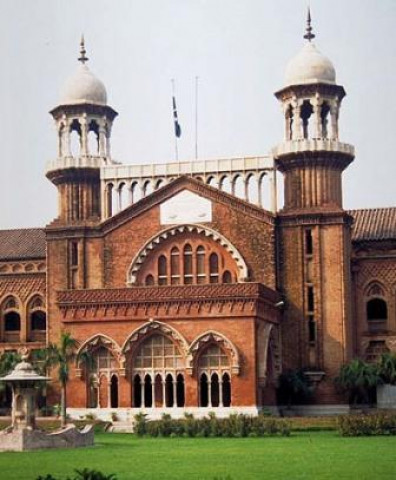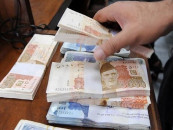Hafiz Saeed bounty: LHC gives federal govt last chance to file reply
Justice Saeed asks DAG Kashmiri to file a reply regarding security for Saeed by the next date of hearing, on May 21.

On Monday, CJ Saeed asked Deputy Attorney General (DAG) Naseem Kashmiri to file the government's reply by the next hearing, scheduled for May 21.
Meanwhile, on the directions of LHC, the Punjab government filed its reply, saying that it would act according to the law if Hafiz Saeed files an application with it for his security.
Advocate AK Dogar, on behalf of the petitioners, submitted that Hafiz Saeed was chief of Jamaatud Dawa (JuD), a charitable organisation with no links to Lashkar-e-Taiba (LeT). Dogar also mentioned that the JuD chief had been wrongly detained by the government in 2009 on charges of having links with al Qaeda but a full LHC bench had set aside the detention after the government had failed to provide any evidence against the petitioner.
He mentioned that both the Supreme Court (SC) and the LHC had already exonerated Hafiz Saeed of all charges leveled against him by India and the US, regarding his alleged involvement in terrorism activities, especially the Mumbai attacks.
Talking about the bounty, the advocate claimed that it was announced on India’s instigation, adding that US Undersecretary of State Wendy Sherman’s announcement of the bounty – according to the media - on April 3 while on a visit to India indicated that.
He argued that head money was always announced for those who were hiding in mountains and caves and were not traceable. Instead, the petitioners were available and were ready to face any investigation.
Dogar further said that the Foreign Office had made it clear to the US that concrete evidence be provided against the petitioners, adding that even Federal Interior Minister Rehman Malik has said there was no evidence against the petitioners, that the US had violated international laws by attacking Pakistan's sovereignty.
He said that the prime minister, addressing a joint sitting of parliament, had also said the Hafiz Saeed issue was an internal matter.
Based on this argument, the counsel concluded that the announcement of the bounty was liable to be withdrawn and the petitioners needed to be protected since they were citizens of Pakistan.
Dogar prayed to the court to direct the government to protect the petitioners and make arrangements for their security under Article 9 of the Constitution. He also prayed that the government be directed to seek withdrawal of the bounty announcement by the US.
He also sought an order against any possible adverse action against the petitioners or their families on the part of the Pakistan government or any agency without taking prior permission from the high court.
Earlier on April 25, the Chief Justice Saeed had rejected the federal government’s reply on a petition filed by Jamaatud Dawa chief Hafiz Saeed. Justice Saeed asked the government if another country could fix a bounty on a Pakistani citizen. DAG Naseem Kashmiri had submitted that Pakistan was bound by UN resolutions, but not by announcements made by America. Hafiz Saeed’s counsel declared the reply “unclear and vague” after which the court directed the government to file its reply again.

















COMMENTS
Comments are moderated and generally will be posted if they are on-topic and not abusive.
For more information, please see our Comments FAQ